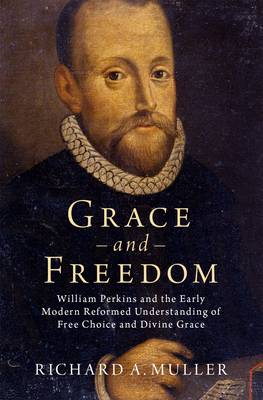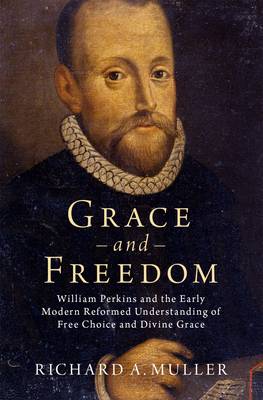
Je cadeautjes zeker op tijd in huis hebben voor de feestdagen? Kom langs in onze winkels en vind het perfecte geschenk!
- Afhalen na 1 uur in een winkel met voorraad
- Gratis thuislevering in België vanaf € 30
- Ruim aanbod met 7 miljoen producten
Je cadeautjes zeker op tijd in huis hebben voor de feestdagen? Kom langs in onze winkels en vind het perfecte geschenk!
- Afhalen na 1 uur in een winkel met voorraad
- Gratis thuislevering in België vanaf € 30
- Ruim aanbod met 7 miljoen producten
Zoeken
Grace and Freedom
William Perkins and the Early Modern Reformed Understanding of Free Choice and Divine Grace
Richard A Muller
Hardcover | Engels
€ 169,45
+ 338 punten
Omschrijving
Grace and Freedom addresses the issue of divine grace in relation to the freedom of the will in Reformed or "Calvinist" theology in the late sixteenth and early seventeenth century. It focuses on the work of the English Reformed theologian William Perkins, especially his role as an apologist of the Church of England, defending its theology against the Roman Catholic polemic, and specifically against the charge that Reformed theology denies human free choice. Perkins and his Reformed contemporaries affirm that salvation occurs by grace alone and that God is the ultimate cause of all things, but they also insist on the freedom of the human will and specifically the freedom of choice in a way that does not conform to modern notions of "libertarian freedom" or "compatibilism." In developing this position, Perkins drew on the thought of Reformers such as Peter Martyr Vermigli and Zacharias Ursinus, on the nuanced positions of medieval scholastics, and several contemporary Roman Catholic representatives of the so-called "second scholasticism." His work was a major contribution to early modern Reformed thought both in England and on the continent. His influence in England extended both to the Reformed heritage of the Church of England and to English Puritanism. On the continent, his work contributed to the main lines of Reformed orthodoxy and to the piety of the Dutch Second Reformation.
Specificaties
Betrokkenen
- Auteur(s):
- Uitgeverij:
Inhoud
- Aantal bladzijden:
- 244
- Taal:
- Engels
Eigenschappen
- Productcode (EAN):
- 9780197517468
- Verschijningsdatum:
- 1/08/2020
- Uitvoering:
- Hardcover
- Formaat:
- Genaaid
- Afmetingen:
- 152 mm x 236 mm
- Gewicht:
- 517 g

Alleen bij Standaard Boekhandel
+ 338 punten op je klantenkaart van Standaard Boekhandel
Beoordelingen
We publiceren alleen reviews die voldoen aan de voorwaarden voor reviews. Bekijk onze voorwaarden voor reviews.









